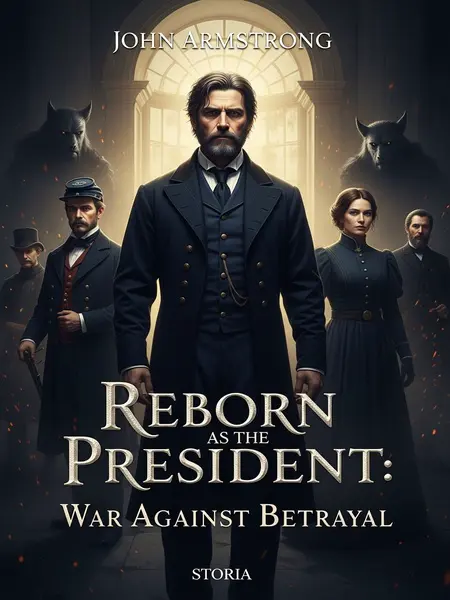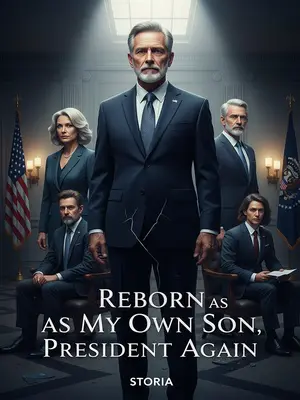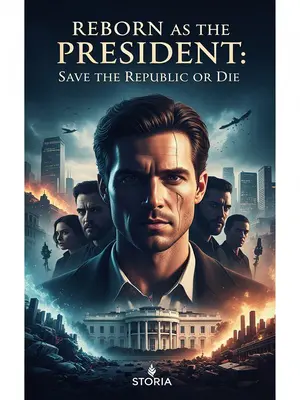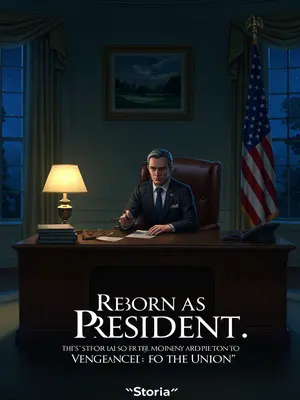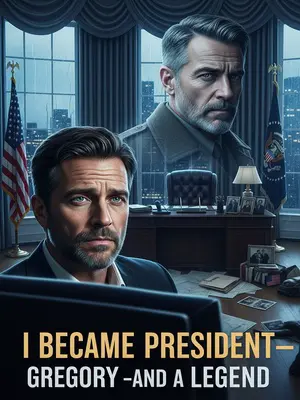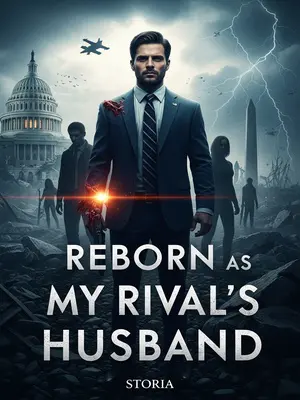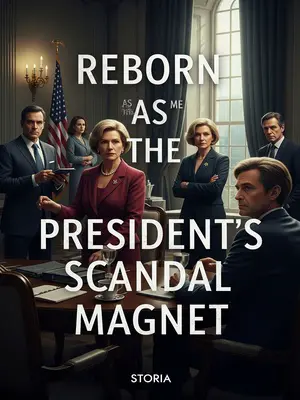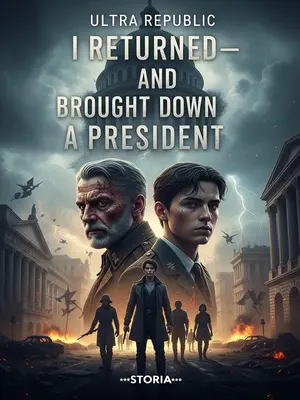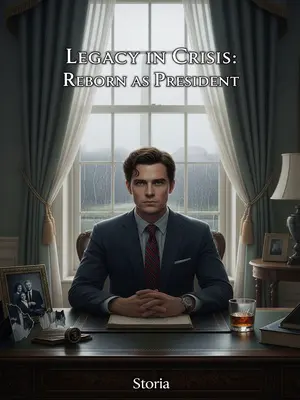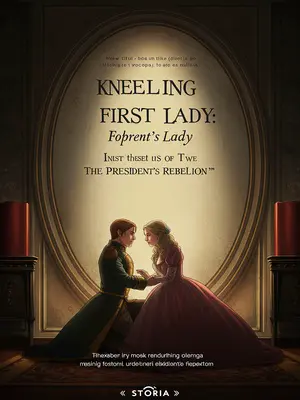Chapter 1: The President Returns
When John Armstrong’s soul landed back in the heart of Civil War–era America, his cabinet’s pleas for negotiation with the Confederacy nearly made him explode with rage:
“You want me to give up our land, pay reparations, and even bow and kiss the boots of some rebel envoy? Am I the President, or just some beggar groveling for leftovers?”
Armstrong’s fury burned hot and close, his hands curling into fists, jaw clenched so tight it ached. The urge to punch a hole straight through the resolute desk nearly overwhelmed him. He glared at his cabinet, storm brewing behind his eyes. For a heartbeat, the room was silent except for the heavy tick of the grandfather clock in the corner.
He could hear his own heart pounding, the room thick with the scent of old tobacco and polished leather, the air so tense it felt like a powder keg.
Abandoning any talk of peace, John Armstrong, along with the aging General Samuel Quinn, personally led the campaign to reclaim the lost states.
But then, another thought struck: it wasn’t just 1862 in the Union.
This was also the year a new power rose out West.
The legendary chieftain, Grey Wolf, was uniting the Plains tribes, about to become the Great Khan of the Prairie.
Faces and names of the era swirled in Armstrong’s mind—stories whispered in smoky saloons and around campfires, tales of wild rides under endless skies, of nations lost and reborn in the sweep of buffalo grass. The West wasn’t just a backdrop; it was a powder keg waiting for a match.
Under this pressure, Armstrong’s excitement only grew. If anyone could stop Grey Wolf from conquering the continent—or even take the place of his empire and rule the nation—
Who but me? He remembered the last time he’d gambled everything and lost, the taste of defeat like gunpowder on his tongue. But this time, he swore, would be different.
---
The last year of Armstrong’s presidency had ended. He closed his eyes, and when he opened them again, he found himself back in a grand, chandelier-lit White House.
For a moment, the scent of lemon oil and old wood filled his senses, the hush of history pressing in from velvet-draped walls. Out the window, the Washington Monument stood sentinel in the dusk, streetlamps flickering as evening settled over the city.
Memories flooded his mind: endless battles of the early republic, the Founders’ preference for lawyers over generals, the humiliation at Fort Sumter—all surged into his heart.
Armstrong muttered, “Damn, I’ve landed in the middle of the Civil War.”
The words tasted like ashes in his mouth. He looked down at his hands, feeling the weight of history—his own and the nation’s—settle on his shoulders. Outside, distant thunder rolled over the Potomac, the city bracing for another storm.
Before he could finish sorting through his memories, a soft, warm body pressed against him—curvy yet graceful, alluring yet pure. Her voice was cool and dignified, but gentle and tender.
“Mr. President…”
Old John shivered.
He felt the mattress dip, the warmth of another person in the chilly room. For a second, it tugged at something deep and lonely in him, a longing for comfort after too many nights staring at the ceiling, haunted by battlefields and regrets.
But the woman’s next words immediately killed his interest.
“John... are you sure we can keep fighting like this? What if we lose everything?”
The words hung in the air, sharp as broken glass. Armstrong’s jaw tightened. The intimacy of the moment shattered, replaced by a sense of foreboding. He rolled his shoulders back, feeling the ache of responsibility seep into his bones.
For a split second, he almost softened. But years of betrayal and backroom deals had built a wall too high for even Evelyn’s tears to climb.
Armstrong slowly turned his head and met the gaze of this striking beauty. His brow furrowed, a storm brewing in his eyes.
Damn, the First Lady is meddling in politics?
Who the hell are you? If you were Eleanor Roosevelt, maybe I’d listen. But you’re not, and you’re out of your depth.
He held her gaze, searching for any sign of real conviction—or was it just worry for herself, for comfort and safety, for the life of silk and pearls? These thoughts flashed through Armstrong’s mind, and the hard edge of a man who’d survived battlefields and bloodshed instantly flashed in his eyes.
The beauty’s body stiffened, as if the man before her was no longer the accommodating president she knew, but a lion ready to devour anyone.
Unable to help herself, she shrank back, sliding off the mattress, knees sinking into the plush rug, tears streaking her cheeks as she looked up at him.
“Mr. President, I just worry about you working yourself to the bone, night and day. If your health fails, what will become of the Union?”
Her voice quivered as she clutched the edge of the comforter, the silk of her nightgown pooling around her knees. The distant sound of carriage wheels on Pennsylvania Avenue rattled the windows—a world moving on, indifferent to her distress.
The repeated “Mr. President” matched the name in his memory.
First Lady Evelyn Armstrong.
She had no powerful family background. To become First Lady, besides being well-educated, it was entirely due to her extraordinary beauty.
In another time, in another life, maybe Evelyn would’ve been a Broadway star, her poise and intelligence lighting up rooms from New York to New Orleans. Here, she was a symbol—a trophy, perhaps, but also a survivor.
Armstrong raised his eyebrows, thinking: You don’t need to worry anymore; your president already died of exhaustion.
So he was Evelyn’s president.
This man Armstrong knew well—President Zachary Cole. For the sake of the Northern Campaign, Cole, together with his powerful Secretary of State, Henry Tuttle, proposed to further honor General Grant, making him a national hero, stripping Benedict Arnold of all honors, and changing his reputation from “Loyal Patriot” to “Traitor and Coward.”
He also called upon the over-sixty-year-old General Samuel Quinn and the eighty-year-old poet Robert Lane to rally the nation.
And then it stopped there.
No real generals who understood warfare were employed, no troops reorganized, not even using Quinn to advise on military matters.
So whom did Tuttle use?
The central front’s commander had never fought a battle; the eastern front’s commander was clueless, yet every day compared himself to Ulysses S. Grant.
Grant: “…”
Armstrong couldn’t help but roll his eyes, recalling the utter absurdity. The names shuffled in and out of the war room like actors in a bad vaudeville act—each convinced they could outdo Grant, none willing to dirty their boots in the mud of real battle. The disconnect was enough to make his blood boil.
These people were greedy for glory, promoted only their own, and within months were all soundly defeated, prompting a massive Confederate counterattack.
General Quinn, unable to take the field, resigned in anger, writing, “In haste like Sherman, conquering Atlanta, only to win a panicked look southward,” and “Who can I ask, is General Lee old, can he still fight?”
Sixty-six-year-old Quinn retired in dismay, and over-eighty Lane gazed north toward the Mason-Dixon line.
If not for Bill Zane emerging on the eastern front, running back and forth to block the Confederate army… the rebels would have reached the Ohio River again.
So throughout the cabinet, everyone was discussing peace, even First Lady Evelyn in the White House began whispering in bed.
Henry Tuttle was still holding on.
The western front was the Rockies, led by William West. The West family had commanded troops in the Rockies since the early days of the Union, three generations as commanders—the Rockies’ only remaining hope for the Northern Campaign.
Tuttle: “Mr. President, the sons of the Rockies are brave and will surely defeat the enemy.”
Armstrong rubbed his temples.
Headache.
Others might not know, but he knew all too well—there was no hope on the western front.
William West had already betrayed the country. By the end of this year, he would cede four counties to the Confederates, send countless Colorado and Wyoming sons to be slaughtered, then accept the Confederates’ offer and call himself Governor of the Rockies.
Even if Armstrong knew this, the West family had commanded the Rockies for three generations. If you sent someone now to accuse them of rebellion, not only would it be too late, but no one would believe it.
He thought about the mountain air, the gold rush camps, the West boys raised tough as pine knots—could they really betray everything their grandfathers built? The thought made his stomach turn, the betrayal all the more bitter.
The autumn wind blew; it was almost October. This Northern Campaign was clearly beyond saving.
Armstrong let out a breath, thinking it didn’t matter. Since he had come to this era, he would clean out the bureaucracy, reform the military, and in three to five years, still defeat the Confederates and honor the blood of these recent heroes.
The window rattled in its sash; a leaf blew in, yellow and crisp, settling on the presidential rug. Armstrong bent to pick it up, a wry smile twisting his lips. He crumpled the brittle leaf in his palm, watching it flake away—like so many promises made in this house.
Armstrong raised his eyebrows and smiled, thinking: When I was in my thirties, who in the country could withstand my army?
He remembered the raw, wild years—bivouacs under the stars, the weight of command, the way young men looked at him with trust and terror and hope all tangled together.
Perhaps seeing him smile, Evelyn finally spoke.
She slid off the mattress, knees sinking into the plush rug, tears streaking her cheeks as she looked up at him. “Mr. President, I know I don’t understand state affairs, so even though Secretary Tuttle looks down on me and wants to harm you and our child, I didn’t stop him from launching the Northern Campaign.
But now the Union has lost again and again, and he still insists on war. I voiced my worries, and you frightened me like this… Even if I’m at fault, have you ever considered my feelings?”
Evelyn’s voice cracked, her mascara smudged. She clutched a small gold locket—inside, a faded daguerreotype of their family, a reminder that the burdens of office were never entirely his alone. Her words, part accusation, part plea, echoed in the silence that followed.
Armstrong looked at the pitiful Evelyn, coldly laughing inside.
She could outfox half the men in Congress, but she’d never played chess with someone like him.
Controlling Zachary Cole is no problem, but trying to manipulate old John? She’s overestimating herself.
Her social skills may be top-notch, but old John has read the history books.
After the Northern Campaign failed, Evelyn, together with Deputy Secretary of State Michael Shea and the White House Chief of Security Charles Jenkins, forged an executive order, ousted Tuttle, and negotiated with the Confederates.
With cabinet members, First Lady, and the chief of security—such a lineup could even oust a president.
So for the next ten years, the White House was controlled by Evelyn and Shea.
Armstrong quietly watched her performance, inwardly wanting to fire the scheming First Lady.
But he couldn’t.
This Northern Campaign was doomed; to reform the military and strengthen the army, he needed to stabilize the cabinet and plan long-term.
Ousting the First Lady would only alert the enemy.
So Armstrong kindly said he had just been thinking of something else, and it was not his intention to frighten her.
He softened his voice, reaching out a hand—more out of habit than real affection—and patted her trembling shoulder. “Long night. Too many things on my mind,” he said, letting a sigh slip through. “You didn’t do anything wrong, Evelyn.”
“Then what were you thinking about?”
“Thinking that all the politicians and generals are useless and should all be fired,” Armstrong half-joked.
He let out a wry chuckle, a sound that mixed irony with exhaustion. “Hell, if only the world were that simple.” He ran a hand through his graying hair, the weight of years settling in his bones.
Evelyn, while dressing, threw him a flirtatious, reproachful glance.
She fastened a pearl earring, tossing her hair with practiced grace, the corners of her mouth quirking up as if daring him to banish her from his thoughts. Her movements were deliberate, a silent reminder of her place in this house.
Armstrong truly thought so; whether in the White House or outside, in the cabinet or at the front, the only one he valued was General Quinn.
Everyone thought the Confederates were the main enemy, but only Quinn wrote in his reports that the Confederacy would surely fall, and the real threat would rise from the even fiercer West. When that time came, if the North and Midwest did not prepare for war, they would be destroyed.
Quinn’s words echoed in Armstrong’s mind—prophecies written in a shaky hand, scrawled across battle maps and folded into sealed dispatches. The old man saw what others refused to see: the coming storm was bigger than any blue and gray fight over cotton or tariffs.
But the empty cabinet heard nothing.
Sadly, Quinn was already old, sixty-six, and it was uncertain if he could live to see the Northern Campaign.
At this thought, Armstrong suddenly caught his breath, his pupils trembling violently.
Since arriving here, the war with the Confederates had been overwhelming, making him forget something.
The year 1862, besides the Union-Confederate war, seemed to have another extremely important event.
Armstrong brushed aside Evelyn, letting her fall to the floor with a startled scream, and rushed straight to the study. The White House staff along the way were panicked, not knowing what had happened to the president.
He all but sprinted, coat flying, the marble floors echoing his urgency. Secretaries stared after him, eyes wide, pens paused above ledgers. The air in the hallway was thick with tension—no one dared ask what had set the president off.
Armstrong flipped through one report after another, tossing page after page, white paper swirling in the study like snow, until he finally found the news he sought.
He pawed through leather-bound ledgers, the smell of ink and dust filling his nostrils, until he found a slim, dog-eared report wedged behind a stack of legal opinions. His fingers trembled, more from anticipation than age.
In an unnoticed corner, it was recorded that six or seven months ago, after much war, the distant western plains had been unified.
Under the sunlight, tribal chiefs and the leaders of various bands knelt in a dark mass, only a wolf-like man standing in the light.
Drums thundered, chiefs and warriors shouted, conferring a title upon the hero who unified the plains.
The title: Great Khan of the Prairie.
So 1862 was the year Grey Wolf pacified the West, became the Great Khan, and began to set his sights on the world.
Armstrong’s breathing quickened, his heart pounded, his temples throbbed, and he lost all confidence and composure in treating the Confederates as his only opponent.
This is Grey Wolf!
Five years of reform and training, eight years to destroy the Confederates—easy mode, that’s fine.
But this isn’t easy mode; there’s a hidden boss!
In eight years, Grey Wolf could destroy the Western Territories, sweep through the Rockies, and even raid the Confederates along the way.
By then, even matching the Plains’ strength would be hard, let alone fighting their peak cavalry on the battlefield.
What can be done now?
The study felt suddenly too small. Armstrong braced himself on the desk. Outside the door were the First Lady and a group of staff. White paper covered the floor, and as the autumn wind blew, it fluttered everywhere.
The old house creaked with the wind, and for a heartbeat, Armstrong felt alone—just a man with too many enemies, holding the fate of a nation in trembling hands. He squeezed his eyes shut, letting the silence fill him, searching for the fire that had kept him alive through darker days.
Time seemed to slow. Armstrong could not hear the voices outside, only his own heavy breathing.
Thump, thump—Armstrong’s heartbeat was like a drum, but his eyes grew ever more determined. A lifetime of hardship passed through them; from drifter to president, the thorns and fire also leapt from his gaze.
Blood and storm, mountains of bodies and rivers of blood—John Armstrong always played on hard mode.
He remembered the freezing bivouacs in upstate New York, the roar of cannon at Antietam, the desperate courage of men who’d lost everything but hope. All of it—every scar, every lesson—boiled up inside him. He felt his pulse steady, resolve settling in like cold steel.
A burst of laughter rang from Armstrong’s mouth, echoing far and wide. That laughter pierced the clouds and shattered the genteel calm of Washington, startling the cowardly politicians, leaving only a heroic spirit spanning the nation.
The sound carried down the halls, into the kitchens and servants’ quarters, and out through open windows onto rain-slicked lawns. For a moment, the city held its breath, the laughter as defiant and wild as a cavalry charge.
Grey Wolf is peerless in this world; to have such an opponent, a real man could die without regret.
Those heavy breaths, throbbing veins, were not from pressure or fear; his eyes blazed, lips curled in a smile, his whole body brimming with excitement.
Come, Grey Wolf! If anyone in this world can stop your empire from swallowing the continent, or even replace your empire and unite the nation…
Who but me?
Armstrong slapped the desk, looked up, and shouted outside: “Send my order: in fifteen days, I will summon all cabinet members to discuss the strategy of war and peace.”
Still want peace talks? Go talk to your mother! To fight Grey Wolf, there’s no time for step-by-step caution.
Armstrong looked to the autumn wind: “This Northern Campaign, I must win.”
The wind rattled the windows, carrying with it the scent of rain and distant gunpowder. Armstrong’s reflection in the glass was not just a man, but a nation ready for war.
